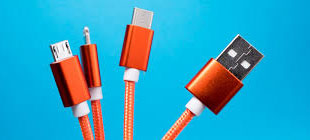ABSTRACT Enforcement of an Effective Cartel can yield a tangible reduction in prices as well…
European Commission Proposing Standardization of Chargers
The Commission proposes to do so by bringing in a revised Radio Equipment Directive for decoupling of the sale of chargers from the device as well as a proposal for a uniform charging port. A bare reading of the proposal is as under:
Harmonized fast charging technology will help prevent that different producer unjustifiably limit the charging speed and will help to ensure that charging speed is the same when using any compatible charger for a device.
Improved information for consumers: producers will need to provide relevant information about charging performance, including information on the power required by the device and if it supports fast charging. This will make it easier for consumers to see if their existing chargers meet the requirements of their new device or help them to select a compatible charger. Combined with the other measures, this would help consumers limit the number of new chargers purchased and help them save €250 million a year on unnecessary charger purchases.

This European Commission’s proposal will now need to be adopted by the European Parliament and the Council by ordinary legislative procedure (co-decision). Once the proposal passes through the legislative process, it would have an implementation period of two years, meaning the new rules would likely come into effect in 2024.



